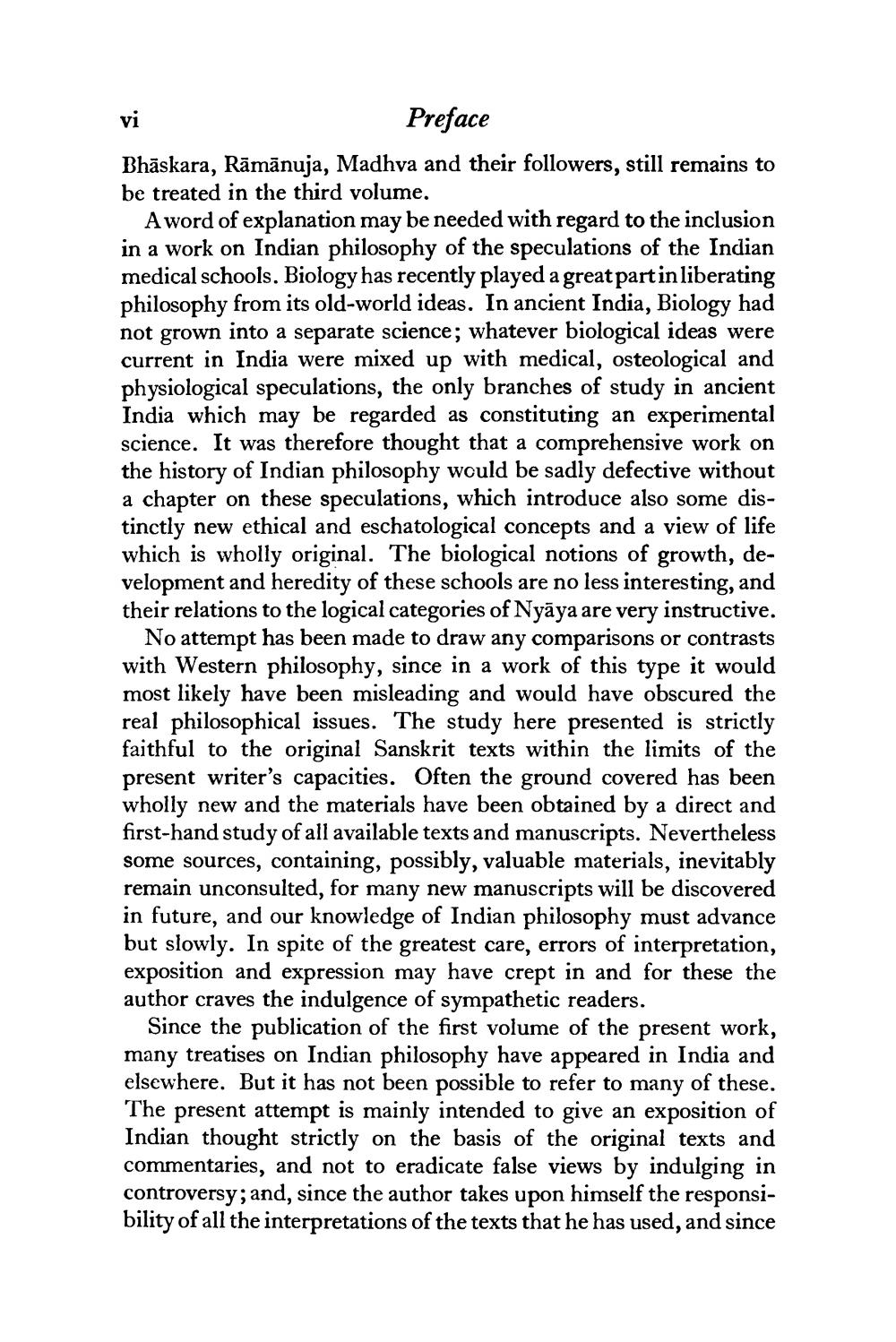________________
Preface Bhāskara, Rāmānuja, Madhya and their followers, still remains to be treated in the third volume.
Aword of explanation may be needed with regard to the inclusion in a work on Indian philosophy of the speculations of the Indian medical schools. Biology has recently played a great part in liberating philosophy from its old-world ideas. In ancient India, Biology had not grown into a separate science; whatever biological ideas were current in India were mixed up with medical, osteological and physiological speculations, the only branches of study in ancient India which may be regarded as constituting an experimental science. It was therefore thought that a comprehensive work on the history of Indian philosophy would be sadly defective without a chapter on these speculations, which introduce also some distinctly new ethical and eschatological concepts and a view of life which is wholly original. The biological notions of growth, development and heredity of these schools are no less interesting, and their relations to the logical categories of Nyāya are very instructive.
No attempt has been made to draw any comparisons or contrasts with Western philosophy, since in a work of this type it would most likely have been misleading and would have obscured the real philosophical issues. The study here presented is strictly faithful to the original Sanskrit texts within the limits of the present writer's capacities. Often the ground covered has been wholly new and the materials have been obtained by a direct and first-hand study of all available texts and manuscripts. Nevertheless some sources, containing, possibly, valuable materials, inevitably remain unconsulted, for many new manuscripts will be discovered in future, and our knowledge of Indian philosophy must advance but slowly. In spite of the greatest care, errors of interpretation, exposition and expression may have crept in and for these the author craves the indulgence of sympathetic readers.
Since the publication of the first volume of the present work, many treatises on Indian philosophy have appeared in India and elsewhere. But it has not been possible to refer to many of these. The present attempt is mainly intended to give an exposition of Indian thought strictly on the basis of the original texts and commentaries, and not to eradicate false views by indulging in controversy; and, since the author takes upon himself the responsibility of all the interpretations of the texts that he has used, and since




